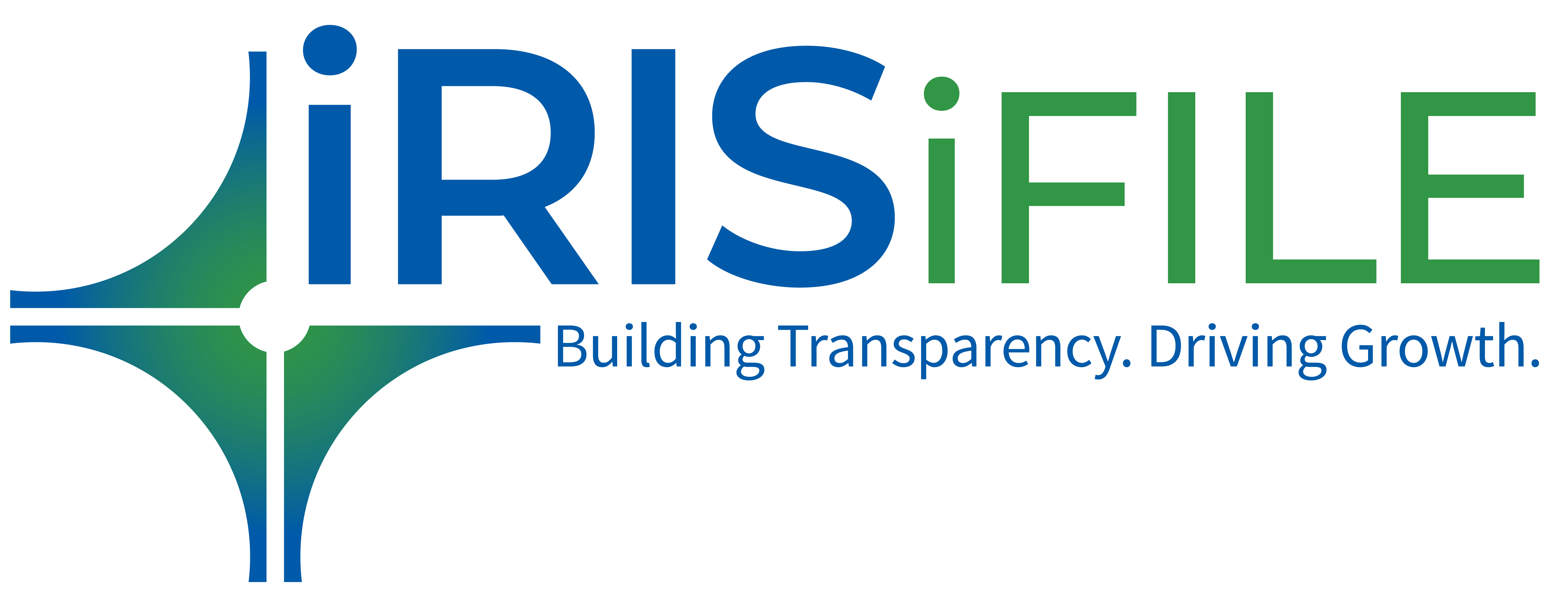The Johannesburg Stock Exchange (JSE), South Africa, is the largest stock exchange in Africa with more than 400 listed companies and a combined market capitalization of over $182 billion. In 2008, in a pioneering move, the exchange mandated XBRL based regulatory reporting for listed companies through the X-filing platform. The main objective of the platform was to offer all stakeholders better access to financial information.
Challenges
One of the main challenges JSE faced was the lack of a financial reporting standard which could be followed across all the industries and companies listed with the exchange. JSE also did not have a way to capture the data of all the companies electronically while keeping the costs of capturing and processing information low. The prevailing practice was to capture the data from the companies either through hard copies or pdf files. Due to this, it was becoming difficult for investors to gain access to the companies’ financial information in an electronic format for analysis.
JSE realized that on a global front, with many of the large exchanges adopting XBRL as a preferred financial reporting standard, JSE would also potentially become the supplier of choice for all investment related information if it accepted the same. Not only this, but the adoption of XBRL would also allow JSE to build a name for itself as an investment friendly exchange as it would be able to provide unparalleled access to its markets. Thus, in a pioneering move, the exchange decided to adopt the XBRL standard for listed companies’ regulatory reporting.
The Solution
As a first step, JSE commissioned a pilot in 2008 with Deloitte SA and IRIS Business Services (IRIS) to establish the proof of concept and feasibility prior to implementing a full scale XBRL based reporting solution. The pilot included creating a taxonomy based on IFRS 2008 for a select set of industries (Banking, Mining and Financial Services) and software applications for viewing and consuming XBRL data.
After a successful pilot, JSE commissioned a full scale implementation of an XBRL enabled electronic filing system called X-Filing. Deloitte SA and IRIS were engaged for developing the JSE Taxonomy, and the X-Filing system based on the taxonomy.
1. JSE Taxonomy
The JSE taxonomy is the core of the X-Filing system. While the pilot was conducted on the basis of IFRS 2008, the final JSE taxonomy was globally the first XBRL taxonomy to be based on IFRS 2010. Another progressive step in creating the JSE taxonomy was the use of XBRL formula specification for business rules validations, another early adoption. The JSE taxonomy provides a strong foundation for the robust functioning of the X-Filing system.
JSE Taxonomy Management Module (JTMM)
The JSE taxonomy management module is an application that provides X-Filing platform users access to the base taxonomy. Through the module:
-
- Filers can select and download relevant sections of the taxonomy based on the applicable industry.
- Filers can create extensions to the base taxonomy without the need to dive into the technicalities of the XBRL standard.
- JSE users can upload and manage taxonomy versions. The module lets the users edit the taxonomy so that they can manage the versions applicable to the latest filing regulations.
2. X-Filing System
IRIS used its proprietary solution
IRIS iFILETM and customized it to form the basis of the X-Filing system. IRIS iFILETM is an end-to-end e-filing solution. It comprises a user–friendly, spreadsheet-based client application and a set of extensive server side components that can accept data, validate it against both XBRL and business rules, store data in file repositories as well as relational databases and provide rich analytical tools for viewing and consumption of data in XBRL.
Extremely modular in structure, IRIS iFILETM’s various components can be plugged into the system as required, to adapt to any model of electronic reporting, with minimal customization.
The following diagram depicts the JSE X-Filing system’s architecture, built using IRIS iFILETM components.
The system architecture is broadly made up of two components:
X-Filing Client (Submitter Module)
X-Filing Server (JSE X-Filing Portal)
a. X-Filing Client:
The X-Filing Client is an MS ExcelTM based application which enables the filer to prepare financial information in the XBRL format. The filer need not have any knowledge of XBRL as the client application completely masks its technicalities.
The application is built using the XBRL taxonomy which is based on the reporting standard and other business elements required by the regulator. Filers can directly input their data into the template. The data entered is validated on the basis of rules which can be taxonomy and/or business related. IRIS iFILETM client reports errors if the information entered is not according to the reporting standard.
The application can be customized to either submit or upload information – it can either generate instance documents that can be uploaded onto the server or it can submit the information using the web services component, which in turn creates the instance document at the server end.
The module also has the provision for encrypting and digitally signing the document with the submitter’s private key, and hashing the data for non-repudiation.
b. X-Filing Server
The X-Filing server application comprises various components that enable the users of information to register and submit their data or view data submitted by filers. The submitters can also view the filing history, and the status of each filing. On the other hand the data consumers’ portal displays the filings in a standard format with summary financials and pre-defined ratios. With additional approvals, consumers can also access and download the filing documents using the Excel download analyzer.
Through the JSE’s internal portal, authorized users can also create new filing templates or edit the existing ones. These can be later published for submitters to use and create their filings.
The application also allows JSE business analysts to generate standard and custom reports consisting of data across companies, periods etc.
3. Excel Analyzer and Web Rendering Engine
The Excel Analyzer is a tool developed by IRIS for JSE users to view and analyze financial reports in XBRL. Accessed via the web rendering engine, it helps users view and download the XBRL financial reports submitted by the filers.
The Excel Analyzer can be used to compare financial information of a company over different periods, and also to compare financial information of different companies for the same/different periods.
Both the above applications use the JSE taxonomy presentation and label linkbases to display the submitter filings on web and ExcelTM.
The X-Filing system has an in-built mechanism of acknowledging the receipt of the filing, as well as informing the company if any errors are found. The repository at the JSE stores all the taxonomies of various industries, the templates and the XBRL filings of all the companies.
The financial data of the companies filed is available and displayed on the JSE website. A detailed report can also be downloaded onto a spreadsheet, accessible to registered users. The administrator of the JSE X-Filing system has a comprehensive set of tools, to make updates to taxonomies, templates and manage all the users in the system. The administrator also has a dashboard for monitoring and approving all the filings made by companies on the JSE X-Filing website. In the long term, JSE is also looking at integrating the X-Filing system with its automated news feed application.

The Benefits
The project went live on July 2, 2010 and is in the voluntary filing stage. The introduction of XBRL in filing has allowed for faster and easier access to company information for both investors and analysts. “Promoting XBRL is in line with the JSE’s efforts to continually innovate, encourage greater market transparency and to improve efficiencies in the preparation and communication of financial information”, says Freda Evans, Chief Financial Officer at the JSE.
JSE derived the following benefits:
- Convergence with International Standards: The JSE is the first major stock exchange in the world to report its financial statements according to International Financial Reporting Standards (IFRS) using XBRL. Adoption of IFRS for financial reporting in XBRL format will help fund managers, analysts, and retail investors analyze companies easily, make appropriate comparisons and eventually improve their investment decision-making.
- Secure Database: The JSE required a high level of security around the filing application solution. To address their requirements on security, IRIS incorporated many functionalities as well as processes in the workflow. The portal has a secure login for financial staff to load their financial data and a separate login for investors and analysts to download this data. With SSL encryption, re-authentication requirements, email based password resets and use of session IDs to track server access, X-filing is one of the most secure platforms for financial data exchange.
- Efficiency and Time Savings: XBRL has the potential to cut hours of waste and inefficiency for the companies that use it well. Once data is gathered in XBRL, different types of reports using varying subsets of the data can be produced with minimum effort. A company finance division, for example, could quickly and reliably generate internal management reports, financial statements for publication, tax and other regulatory filings, as well as credit reports for lenders.
- Enhanced Data Usability: “The XBRL tagging allows consumers of information to immediately pull out the exact information they want, and instantly compare it to the results of other companies,” says Gavin Marais, XBRL Leader at Deloitte. “This enhanced usability of data offers great advantages to listed companies, analysts, investors as well as to financial journalists who have to report on company performance.”
About Johannesburg Stock Exchange
The JSE Ltd (“JSE”) is licensed as an exchange under the Financial Markets Act, 2012 and is Africa’s premier exchange. It has operated as a market place for the trading of financial products for over 120 years. In this time, the JSE has evolved from a traditional floor based equities trading market to a modern securities exchange providing fully electronic trading, clearing and settlement in equities, financial and agricultural derivatives and other associated instruments and has extensive surveillance capabilities. The JSE is also a major provider of financial information. In everything it does, the JSE strives to be a responsible corporate citizen. More information is available at: www.jse.co.za
About IRIS
IRIS Business Services Limited is a leading structured data solutions company with global presence in regulatory and compliance reporting software. The firm is uniquely positioned with offerings across the spectrum of creation, management and use of structured data in the realm of business and financial reporting. IRIS serves a client base that includes regulators in over a dozen countries around the world, leading banks, financial market intermediaries, consulting firms, financial printers as well as large and small enterprises. Our partner network includes large accounting firms, system integrators and specialized software and consulting firms that use IRIS’ products and expertise to enhance their offerings to end clients. Learn more about us at: www.irisbusiness.com








